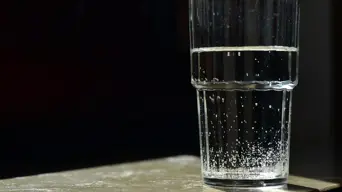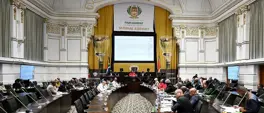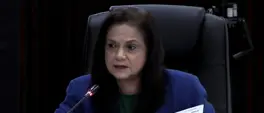Should restaurants charge you for tap water? Water sommelier explains
Tasleem Gierdien
14 October 2025 | 9:37Water sommelier Candice Barry says tap water should be free at restaurants, bars and/or eateries even if it's filtered, chilled, carbonated, and re-dispensed into a bottle.

Picture: Pixabay.com
Can restaurants charge you for tap water?
Barry says tap water should be free at restaurants, bars and/or eateries.
She emphasised that if the water comes from a tap, even if it's filtered, chilled, carbonated, and re-dispensed into a bottle, it's still tap water and shouldn't come with a price tag.
Barry noted that restaurants and venues with liquor licenses were legally required to provide free potable water to patrons consuming alcohol on the premises. This obligation applies regardless of the time of day. "So, it doesn't matter if it's 9 o'clock in the morning," she said.
"If you're licensed to serve liquor, you must provide free drinking water."
Barry recalled a personal experience at a restaurant where she ordered a bottle of water, and when it came to the table, it was an unlabeled bottle because the establishment had re-dispensed tap water into the bottle.
"They present it as bottled water, and that’s the problem," shesaid. "You're disguising it as bottled water so you can charge for it.
"It's common where places will have their own bottles and dispense water from a tap to make it hot, cold or carbonated. But it's still tap water. It shouldn't be charged for. In saying that, there is no law that I am aware of that says you can't charge for tap water if you don't have a liquor license, but it'll always be frowned upon if you're selling tap water."
Barry makes the distinction between 'prepared' and tap water
Prepared water refers to water that has been treated, bottled, and sold under specific guidelines and legal standards.
"If it's in a bottle and it's prepared in a certain way and it's different to natural spring water, where you don't touch the minerals or change the water. For a brand selling prepared water, they will follow legal requirements where they're able to do that because they meet quality and certain standards but sitting in a restaurant and you're simply filtering water doesn't make prepared water, which you can sell.
"When you create a closed bottle system, by legislation, you're automatically in the business of packaged water," she explains. "And if you're not prepared to go the route of becoming a bottled water brand and following all the legal requirements, you shouldn't be putting it in a bottle. Serving it in a glass would be perfectly fine."
She also raised a public health concern: many small filtration systems remove chlorine, which is essential for disinfecting municipal water.
"What happens is, a lot of those little filters will remove chlorine, and it's really important for disinfection of water, so if you take the chlorine out and you put it in this closed bottle and you close the lid, what has it now got to keep that water safe?
"From an eco and sustainability perspective, you can't say we're trying to be eco by disguising it as bottled water so that you can charge because it's tap water."
To listen to Barry in conversation with Lester Kiewit on CapeTalk's Breakfast show, use the audio player below:
Get the whole picture 💡
Take a look at the topic timeline for all related articles.
















